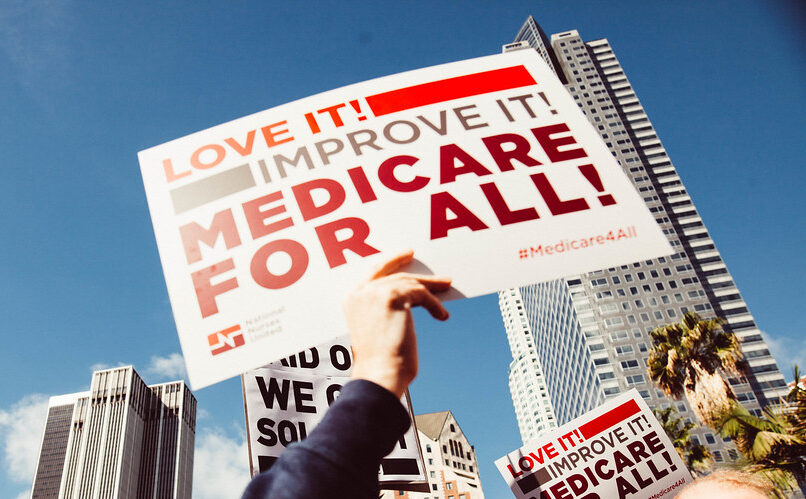COVID-19 highlights need for change in our health care system

As the U.S. faces the world’s highest numbers of coronavirus (COVID-19) cases, deep weaknesses in our health care system are coming to light.
Many Americans, for example, refrain from seeing a doctor for fear of leaving with a bill they cannot afford. A Gallup poll released last December found that 1 in 4 Americans deferred going to a doctor for a serious medical condition.
This is especially dangerous during a pandemic, when any delays in care could spread the virus further.
While coronavirus testing is free, a March 23 Wall Street Journal (WSJ) article explained that there are still gaps in the system when it comes to paying for treatment. Current legislation does not guarantee that an individual’s health insurance plan will cover the entirety of their treatment plan.
About 80 percent of the people who test positive for COVID-19 have moderate symptoms so most people are instructed to take over-the-counter medicine for their fever and pain.
However, for those who develop major complications or pneumonia, the WSJ article said, on average, people are billed $20,000 with an out-of-pocket cost of $1,300.
Additionally, the recent deaths associated with COVID-19 are often individuals who have a pre-existing condition that leaves them immunosuppressed or otherwise compromised.
Even for those with insurance, however, many have high out-of-pocket costs that lead to a reduction in patients seeking medical care. Diabetes patients are less likely to seek diabetes treatment if their deductibles are high, according to a 2016 study from the American Diabetes Association.
This system is doubly ineffective in a time such as this where many Americans have lost their employer-based health insurance, due to the economic downturn caused by the pandemic.
Since the outbreak, 16 million Americans have lost their jobs, and it is unreasonable for the federal government to assume those Americans are in a position to purchase private health insurance. With the uninsured population rising, even fewer Americans will seek medical attention.
It is clear that our health care system is not conducive to the challenges we face.
Now is the time for bold change. The U.S. needs to expand its popular federal health insurance plan for citizens ages 65 and older, Medicare, to cover all Americans.
While there are many forms this plan could take, there are already proposals underway in Congress. Rep. Pramilla Jayapal (D-WA) has a bill in the House of Representatives that would implement Medicare for All over a two-year period.
In the first year of implementation, the program would cover everyone above 55 years old — people already close to retirement age — and everyone below 19 years old — many already covered by Medicaid and the Children’s Health Insurance Program. The next year the plan would cover all individuals.
The bill also provides funding for assisting and transitioning displaced health insurance employees.
The bill’s counterpart in the Senate, introduced by Sen. Bernie Sanders (I-VT), has a number of potential funding mechanisms, including a 4 percent income-based premium for employees that would kick in after employees earn $29,000, in addition to a 7.5 percent income-based premium paid by employers that kicks in after the first $2 million in payroll.
This system would simplify the complicated bureaucracy associated with our current for-profit health insurance system and would reduce total health care spending (both public and private) by $2 trillion over the next 10 years, according to a 2018 study at the Mercatus Center at George Mason University.
Those savings could be passed directly to Americans, the only difference being that they pay taxes to the government instead of high premiums to insurance companies.
The U.S. would be more resilient to this pandemic without the out-of-pocket expenses including copays and deductibles simply because more Americans would feel comfortable seeking medical attention. Americans also wouldn’t need to worry about losing their health insurance, as the federal government can borrow money to pay for health costs if need be.
World-changing events, like what we are currently experiencing, should motivate us to reevaluate the institutions that are failing to take care of us. Our health care system has proven to be worthy of reevaluation.
Jared Sellick is a senior studying political science.







